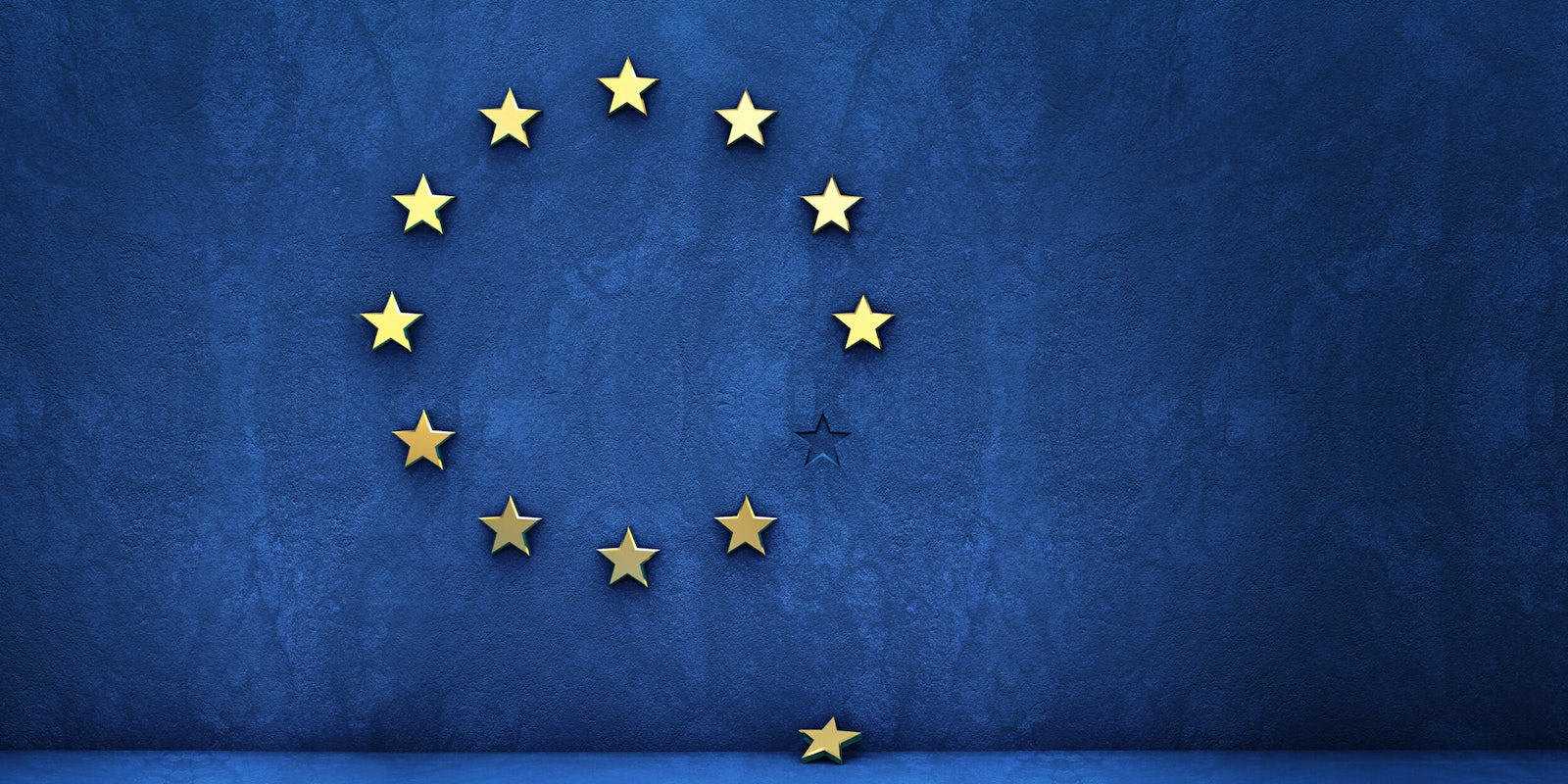The United Kingdom has officially triggered Article 50 of the Lisbon Treaty, invoking the legislative mechanism by which it will formally withdraw from the European Union after 44 years of membership.
Prime Minister Theresa May signed a six-page notification letter on Tuesday evening to initiate what will be a two-year negotiating period between the U.K. and the 27 other member countries. The letter was delivered to the president of the European Council, Donald Tusk, at 12.30pm on Wednesday.
The Article 50 letter. #Brexit pic.twitter.com/SO5R5BTvhw
— Charles Michel (@eucopresident) March 29, 2017
May’s team will be working to secure a beneficial trade deal with the E.U., while also undoing political and economic agreements that stretch back decades. Key issues that will need to be dealt with include citizens’ rights, new immigration rules, and future trading arrangements.
E.U. negotiators also want Britain to settle its outstanding financial commitments that some MPs have referred to as the “divorce bill.” The figure could stand at a colossal $65 billion.
As Britain’s EU ambassador Sir Tim Barrow delivered the formal notice to Brussels, May appeared before members of parliament in London.
“In accordance with the wishes of the people, the United Kingdom is leaving the European Union,” she said. “This is a historic moment from which there can be no turning back.”
“When I sit around the negotiating table in the months ahead, I will represent every person in the whole United Kingdom–young and old, rich and poor, city, town, country and all the villages and hamlets in between. And yes, those EU nationals who have made this country their home,” May said in an appeal for national unity
After a divisive referendum campaign, May faces a very real battle to keep the U.K.’s four constituent countries together. This week, the prime minister traveled to Wales and Scotland as part of that mission.
However, on Tuesday evening, Scotland’s devolved government voted to seek the authority to hold a second independence referendum which would see it break away from the U.K.
It’s also a possibility that Northern Ireland could follow. Northern Ireland possesses the U.K.’s only land border with an E.U. country—with the Republic of Ireland. An enforced border there has political implications, too. The devolved government there is currently locked in a crisis, provoking some of the province’s nationalists to call for a referendum on Irish reunification.
The triggering of Article 50 is only the beginning of what will be a challenging separation, as subsequent negotiations could test the U.K. to its very limits.


